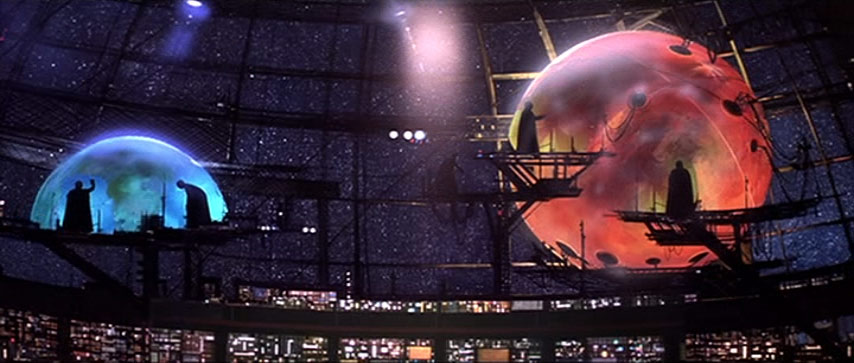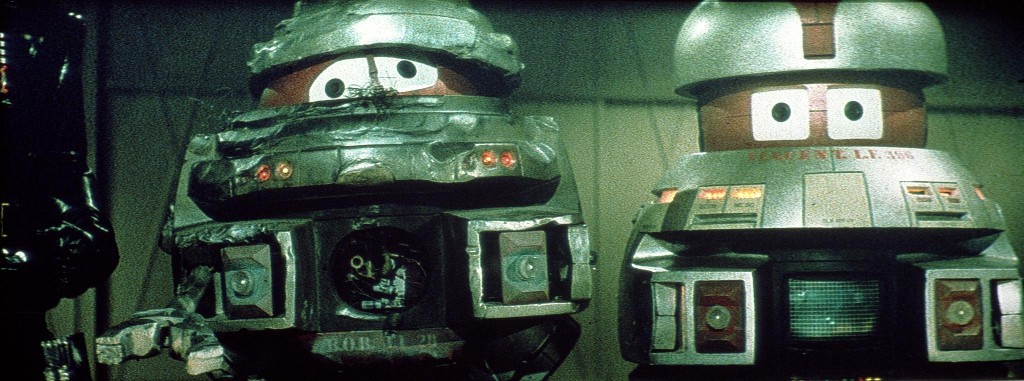Chapter 1: Belfast Robots
When I was thirteen years old I put a poster on my bedroom wall of a movie I was too young to see, but which later came to symbolize the most significant change I have yet experienced. The movie starred Kevin Costner, who was then on the verge of becoming the biggest star of the greatest show on earth; and Susan Sarandon, who not only personified sass, but was the object of inaugural fantasies for many boys my age. The movie also starred Tim Robbins, who not only got to be in some of the more interesting cinematic works of the next two decades, but ended up living with Susan, lucky guy. It was about baseball in small town America and how the game embodies the joys and struggles of ordinary people figuring out what it means to be happy living ordinary lives. It’s funny and sexy and represents a world that seems to be dying, a world that could not exist anywhere but in small town America. It’s one of the best comedies ever made for adults. I think you’d really enjoy it. The movie is Bull Durham. I finally watched it twenty years after I put the poster up. It really did change my life. But that’s not where this story begins.
*
It’s 1979—the Carter administration, the end of disco, the Steelers win the Superbowl (whatever that means), Patty Hearst gets out, Ayatollah Khomeni gets in, Israel and Egypt make nice, the Pope goes to Poland, Saddam takes over, the Greensboro massacre takes lives, China starts the one child policy, and Mr. Ed the talking horse goes to paddock heaven.
I’m four years old in Belfast, northern Ireland and, not without precedent in the annals of childhood, I’m playing with my Tonka trucks. My country is falling apart, caught in the long-running civil conflict that will eventually claim nearly 4,000 lives, physically injure 43,000 more, and traumatize everyone else. It is still a couple of years away from the turning point that nudges us toward abandoning murder as a political tool and toward something more Celtic-touchy-feely instead. But I don’t know any of that yet. It’s just summer and I’m playing with my Tonka trucks. Life seems simple. All I have to do is play, eat, and sleep. The coming September will see me enrolled in this thing called “the big school”, in exchange for which sacrifice I’ll receive the coveted trophy of a canvas lunch bag, screen-printed with a picture of C3-PO and R2-D2 (although my teacher will chastise my mum for not providing my snacks in bland yet spill-proof Tupperware). I’ll meet people in school who may or may not become my friends for life. I’ll get excited about the prospect of Christmas. And then I’ll spend the rest of my days figuring out what it means to be a person before I join Mr. Ed at the celestial bookies. But, like I said, I don’t know any of this. I certainly don’t know that one of the most soul-shaping experiences I will ever have is only weeks away. On December 18, 1979, Walt Disney Pictures will host the premiere of The Black Hole, their big new film, their “my-God-it’s-full-of-stars” response to Star Wars.
It will star Anthony Perkins from Psycho, Ernest Borgnine from The Wild Bunch, Maximilian Schell from Judgment at Nuremberg, and Robert Forster who will end up in Quentin Tarantino’s Jackie Brown. Timothy Bottoms, who will sort of disappear after emerging here, gets a look in, as will Yvette Mimieux, whose acting career will give way to a vocation in anthropology. Sort of the same thing, I guess.
But four-year-old me won’t care about the actors. What will seduce me are the robots. V.I.N.C.E.N.T., Maximilian, and Old B.O.B. will be more lifelike than the human actors (despite the fact that Maximilian can’t speak and has no motor functions except to stiffly float and chop things up with his demonic red scissorhands). The good robots will inspire early thoughts of warm fuzzy god-figures, the bad one will teach my heart to fear.
The story takes place in a spaceship on the edge of a Vortex (the kind of Vortex that earns its capital “V”). here’s a mad scientist, a beautiful woman, an enormous greenhouse, and an android-making machine. The mad scientist puts his crew into this machine to create minions that help him in his attempt to rule the universe. And it all goes terribly wrong.
The Black Hole was in every sense a BIG film. There’s an operatic score composed by John Barry, there’s spectacular sets, there’s loud sound effects and even an overture. Dad took my brother and I to see it at the ABC
Cinema in the Belfast city centre, the kind of family-run ramshackle movie theater that had a heart precisely because it was ramshackle. There was an institutional memory in the building because it had—unlike today’s multiplexes—been around long enough for there to be something to remember. The velvety, dark red seats of the ABC were the same color as the walls; the staircase to the theater’s entrance transformed the place into a comforting, womb-like chamber. When the lights dimmed, you were immediately enveloped by the movie. At four-years-old, The Black Hole conceived my childhood dreams, and they were born in the ABC. It’s a parking lot now.
*
After the thrill of witnessing Maximilian overcome by V.I.N.C.E.N.T., androids firing lasers, and spaceships—SPACESHIPS! In Belfast!—I was hooked. I spent more time at the movies in the next three decades than almost anywhere else. I developed a dual identity: One side of me was attached to the land of my birth, with the craic—or liveliness—of the northern Irish culture that called a spade a spade, that could laugh at everything even while enmeshed in dark political arts. The other side was colonized by dreams. Some of these dreams—waking ideas and imaginative spaces where I could guess at a different kind of life—came from friends and family, or even strangers I met along the way. Strangers like the guy who suddenly kissed me in Paris before asking me if I wanted to pay him for sex, or the fella who mugged me in Cape Town and settled for a negotiation because I didn’t want to give up all my cash, or the woman who held my hand for a few seconds on the way out of a sports event in Atlanta before she realized I wasn’t her husband. Some dreams came from reading books. But mostly they came from the Book of Life that opened every time the curtain drew back at the ABC, the Curzon Cinema, or the Strand Theatre. Because of the violence that engulfed my community, the limits of home—where people were killed because of their voting preferences or religious beliefs or being in the wrong place at the wrong time, where religion was politics, and politics was violence—were too restrictive for me to accept as the boundaries of being human. Places like northern Ireland struggle to emerge from the lie that being a person is to be merely a receptacle for ideology or a machine for someone else’s use. In those moments when our hearts provoke our minds, we all know this lie equates life with death. The movies sparked this for me. I wanted a cinematic life because dreaming was easier than waking reality.
My young life became structured by the works of Steven Spielberg and Martin Scorsese, Ingmar Bergman and Michelangelo Antonioni, Woody Allen and Mike Leigh, and perhaps most extraordinarily by Phil Alden Robinson’s film Field of Dreams. Robinson seemed to actually believe that listening to the voice in your head and doing the craziest thing imaginable is sometimes the only way to experience life in anything like fullness.
In my overdeveloped teenage cinematic imagination, I visited fields in Iowa, in Provence, and in the North of England. I saw thirty-five year-old untrained farmers plough under their crops in the hope that dead baseball players might visit, and I felt understood because I too have ridiculous dreams. I watched elderly French farmers in Jean de Florette destroy their hopes by defining community as themselves alone, and I feared for my own country because that’s the way we did things too. I saw an inarticulate little boy in Ken Loach’s Kes come to life when he gazed at his kestrel soaring above the satanic mills of his broken town, and wept when his brother’s inarticulacy manifests as a murderous rage, because I know what it is to be angry enough to want to kill.
Field of Dreams should have kept the name of the book it’s based on: Shoeless Joe. Then perhaps so many of us who judge films by their titles, or who haven’t seen it on the grounds of resistance to perceived sentimentality, would be less apt to ignore one of the most emotionally truthful movies ever made. And to those who look down on cinema as a lower art form or because they think it provokes only apathy in people—well, each to their own. Yet Jean de Florette is really a Shakespearean tragedy translated to early twentieth century France. And Kes proves that Loach’s English socialism is as personally compassionate as it is politically committed. You could find a better trilogy of cinematically formative art elsewhere, to be sure. But when I was a child I watched like a child, and I could substitute any number of trios that had emerged into my youthful consciousness: Back to the Future, ET, and Superman; The Goonies, The Golden Child, and Koyaanisqatsi; Tootsie, Cocoon, and Le Grand Bleu; later Tarkovsky’s The Sacrifice, Pontecorvo’s The Battle of Algiers, and Kurosawa’s Ikiru; Kieslowski’s Three Colors; later still Scorsese’s Shutter Island, Noe’s Enter the Void, Reygadas’ Japon. But these all formed me as much as the farmers and the kid with the bird.
My friend Mark Cousins, who writes about and makes films both cool and rich, says that movies “made” him. They made me too, and they also told me what was possible. When cinema erupted into my four-year-old life with larger-than-life robots, it changed me. I would be forever fastened to a vision of the world that was bigger than my home, bigger than my island, bigger than what school taught me lay within the boundaries of rational expectation. But maybe not bigger than me.
*
Three decades pass—Actors, cowboys, spies, and snake oil salesmen sit in the Oval Office sometimes apparently because they have nothing better to do. Princesses die in car crashes, Iran and Iraq fight each other before they
fight with each other, and a blood-borne immune system deficiency decimates the gay community before becoming more of an equal opportunity health crisis. Jim Henson leaves this earth for Muppet heaven, OJ Simpson hides in a slow-moving SUV, and a scraggly-bearded guy in a dark blue robe says we should kill an Anglicized Indian writer. Almost everyone famous plays music to End Famine/Free Nelson Mandela/Save the Planet at one charity concert or another, and no one makes my feet move more than Stevie Wonder. Meanwhile, I become compelled that being human is the biggest thing of all. It is the one thing we’re never going to get over, no matter how hard we try. It collapses all boundaries of gender, nationality, politics, ethnicity, and taste. The Law at its best—enshrining human rights—says so. Art—making books and music and paintings that are ultimately about love or the lack of it—and Faith—the making and breaking of it—say so too. Religion—well, if you can assume that the times and places in which religious people destroy life are anomalies, or at least not the ideal manifestation of their mystical beliefs—says that human beings are “a little lower than the angels.” So, maybe we can assert that being human is bigger than a city, bigger than a country, bigger even than movies.




